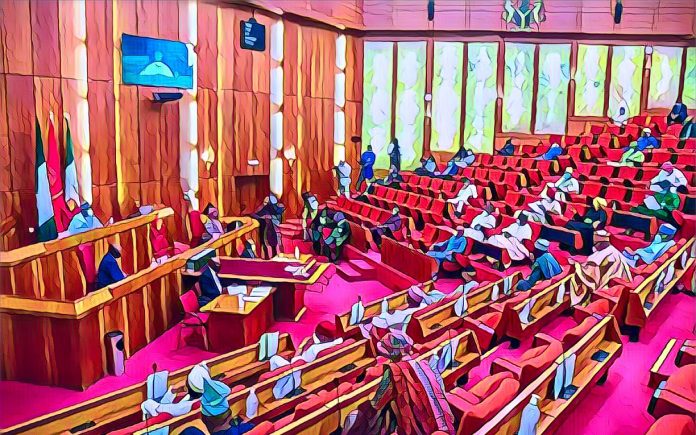Nigeria – The Nigerian Senate finds itself under intense scrutiny following revelations of a budget padding scandal, casting a shadow over the integrity of the legislative body and raising questions about accountability and transparency in government.
The scandal, which has sent shockwaves through the political landscape, centers on allegations of improper manipulation of budget figures by some lawmakers. The revelation has sparked public outrage and calls for accountability from elected officials.
Critics have lambasted the Senate for its role in the scandal, accusing lawmakers of betraying the public trust and undermining the democratic process. The incident has reignited concerns about corruption and malfeasance within Nigeria’s political institutions.
Amid mounting pressure, the Senate leadership has pledged to conduct a thorough investigation into the allegations, vowing to hold those responsible accountable for their actions. However, skepticism remains high among the populace, with many demanding concrete measures to address systemic issues of corruption and mismanagement.
The budget padding scandal represents a significant setback for Nigeria’s democracy, tarnishing the reputation of the Senate and eroding public confidence in the country’s governance structures. The fallout from the scandal is likely to reverberate across the political landscape, shaping public discourse and influencing future electoral outcomes.
Despite the challenges posed by the scandal, there is hope that it will serve as a catalyst for positive change. Calls for transparency and accountability are growing louder, signaling a collective demand for ethical leadership and good governance in Nigeria.
As the nation grapples with the fallout from the budget padding scandal, there is an opportunity for meaningful reform and renewal within the political establishment. By addressing systemic issues and upholding the principles of transparency and accountability, Nigeria can pave the way for a brighter and more equitable future for all its citizens.
Source: BusinessDay



